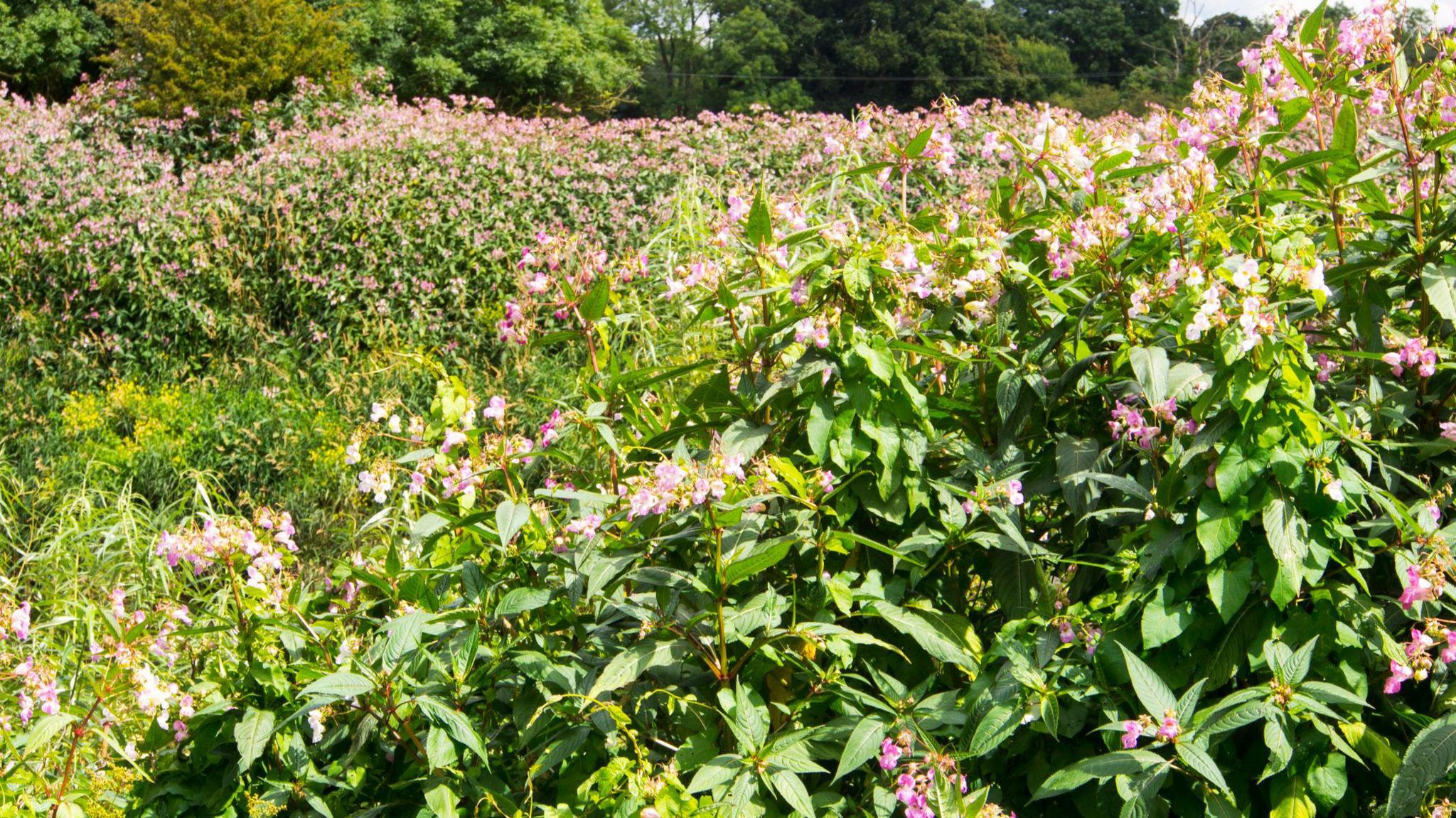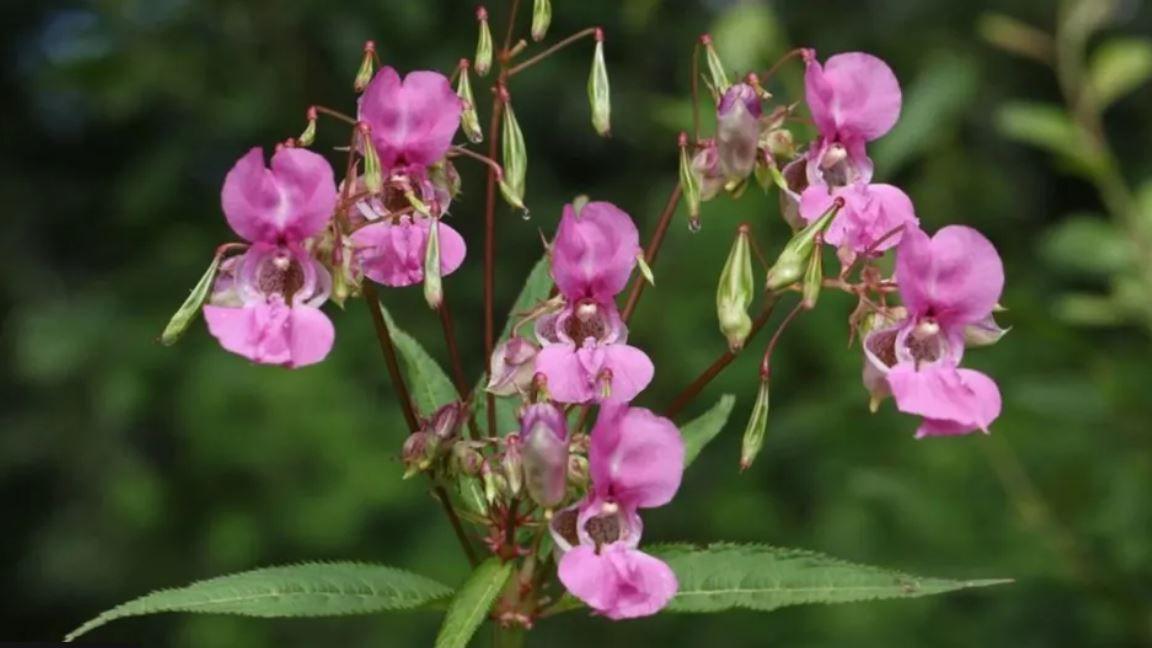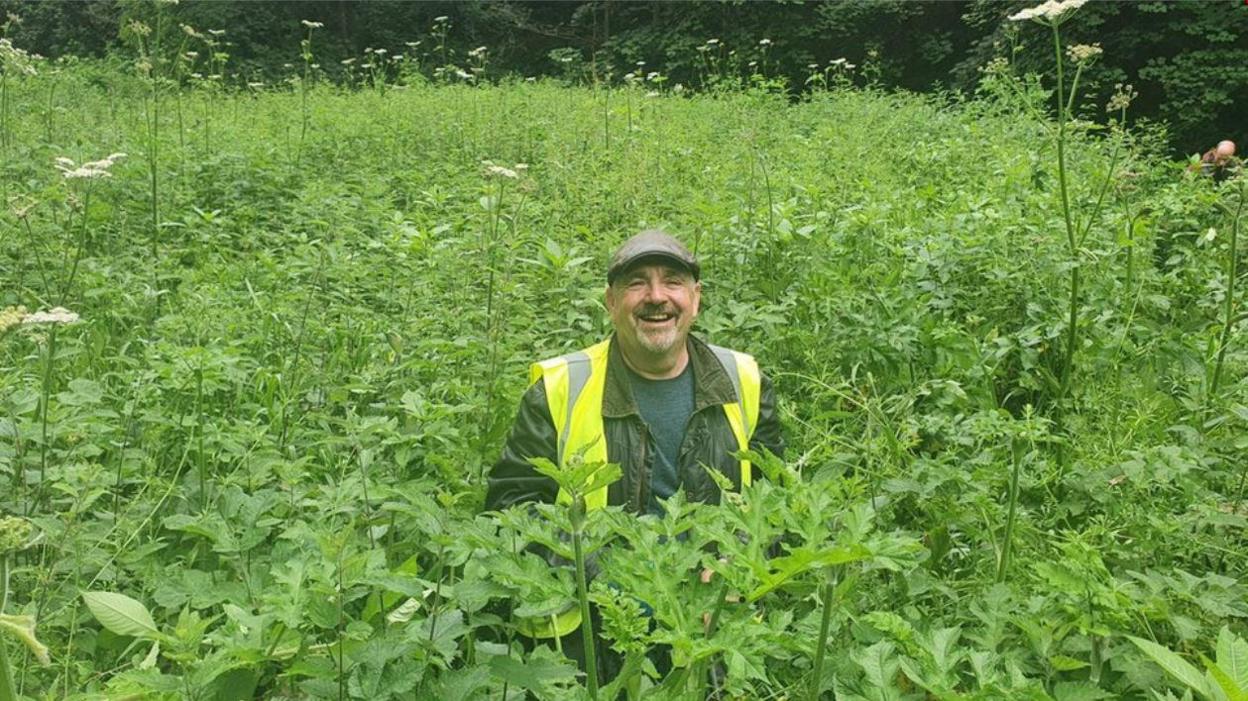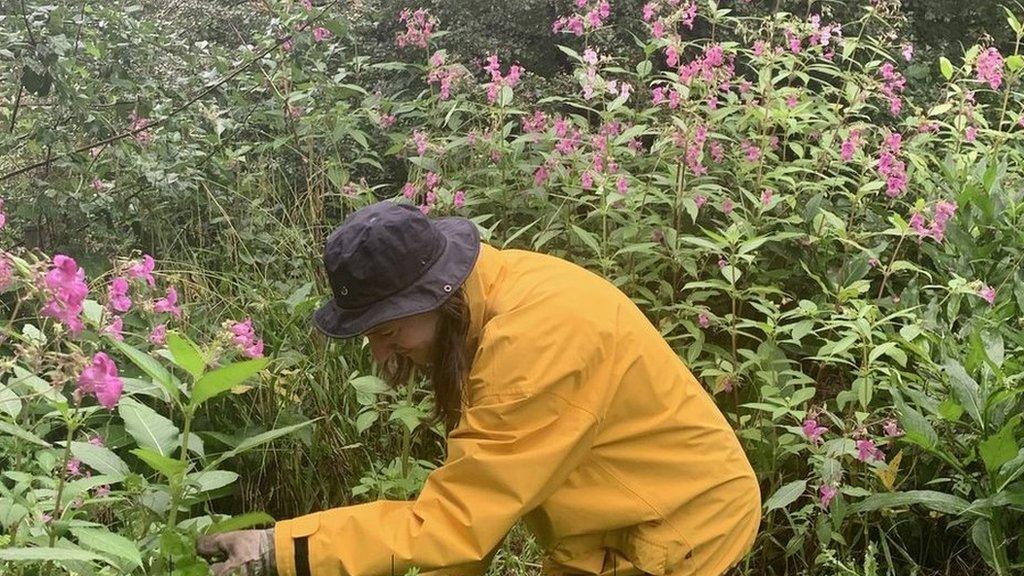Tech company to help tackle invasive plant species

Himalayan balsam is fast-growing, quickly invading wet habitats at the expense of native flowers
- Published
An innovative technology company is hoping to incentivise volunteers to help tackle the invasive species, Himalayan Balsam.
Gloucestershire Wildlife Trust (GWT) is enlisting the help of Gloucester and Cheltenham residents to help them combat the non-native species along the River Chelt throughout June.
The team at GWT is teaming up with Crowdorsa, whose technology reach means they can offer a financial reward to volunteers.
Imported to the UK by Victorian botanists in 1839, the plant has no natural rivals and can quickly dominate ditches and river banks, wiping out indigenous species.

Himalayan balsam, from the Himalayas, was introduced in Britain in 1839
Himalayan balsam has very sugary nectar which tempts bees and other pollinators away from native plants, thereby preventing them from producing seed.
It outcompetes native plant species for resources such as sunlight, space and nutrients.
In addition, when Himalayan Balsam dies in winter it leaves riverbanks bare and vulnerable to erosion. This can reduce water quality, cause sediment to collect in fish spawning areas and can lead to an increased flood risk.
The mission to clear the riverbanks will begin on 3 June, when the plants are in bloom and easy to identify.
The volunteer scheme is open to all GWT WilderGlos users who have a smartphone and can download the Crowdorsa app, where they can then earn up to 25p per square meter of Balsam removed.
“Once approved, players can request their reward to be transferred from the virtual wallet to their bank account," explains Toni Paju, CEO of Crowdsorsa.
Follow BBC Gloucestershire on Facebook, external, X, external and Instagram, external. Send your story ideas to us on email or via WhatsApp on 0800 313 4630.
- Published18 May 2024

- Published2 August 2023
